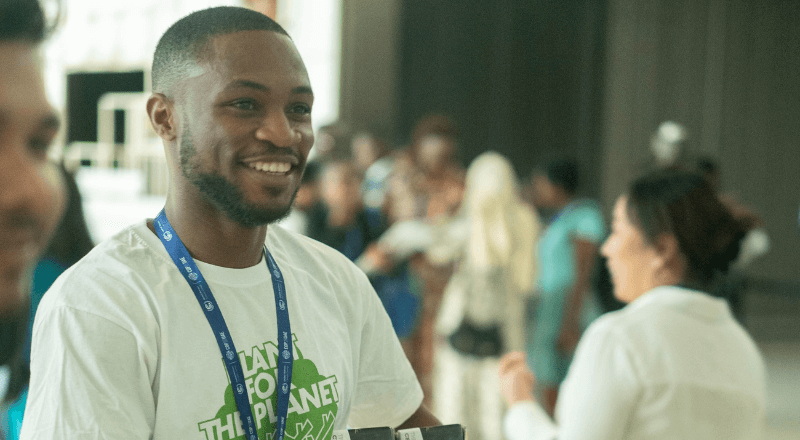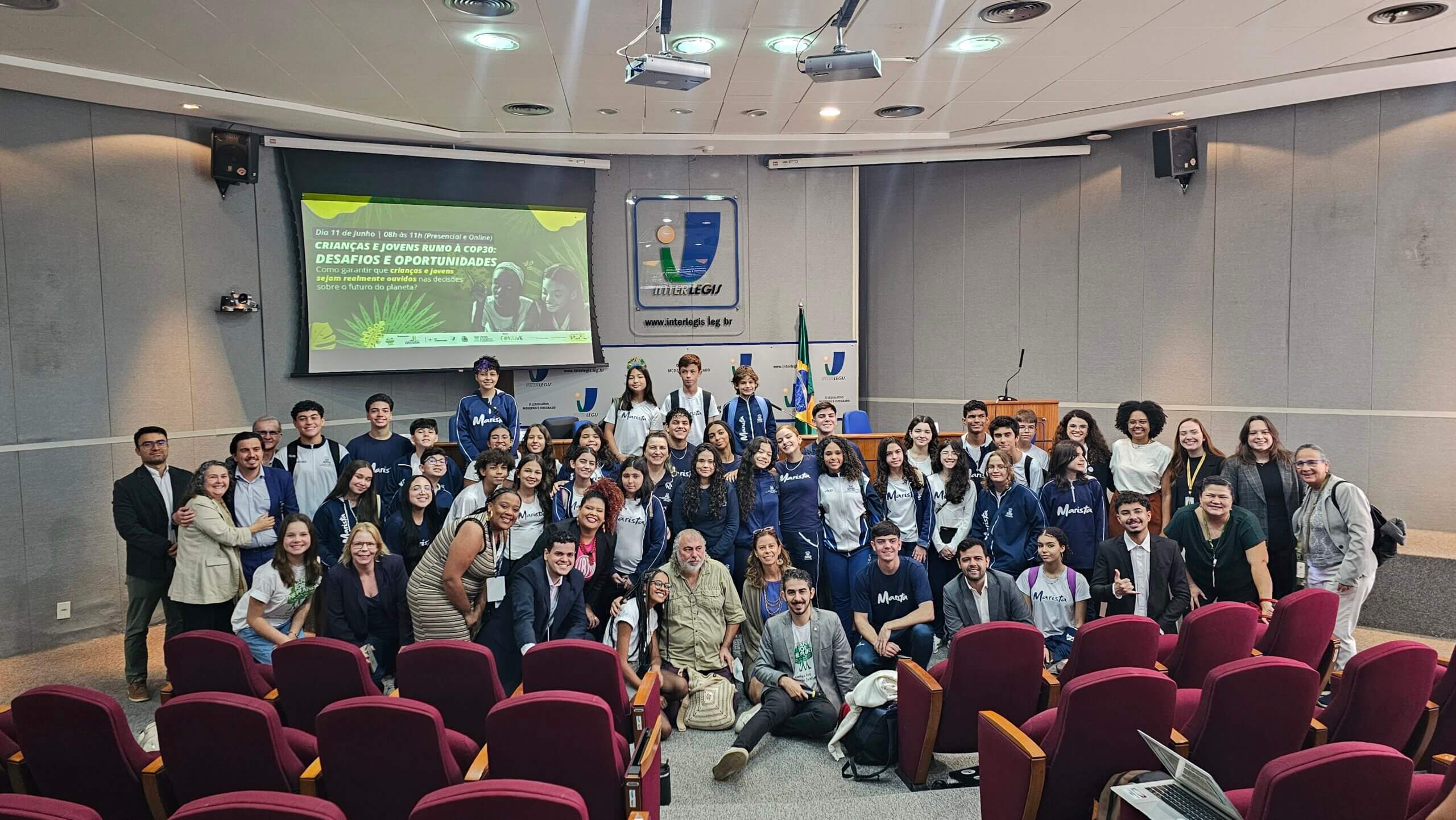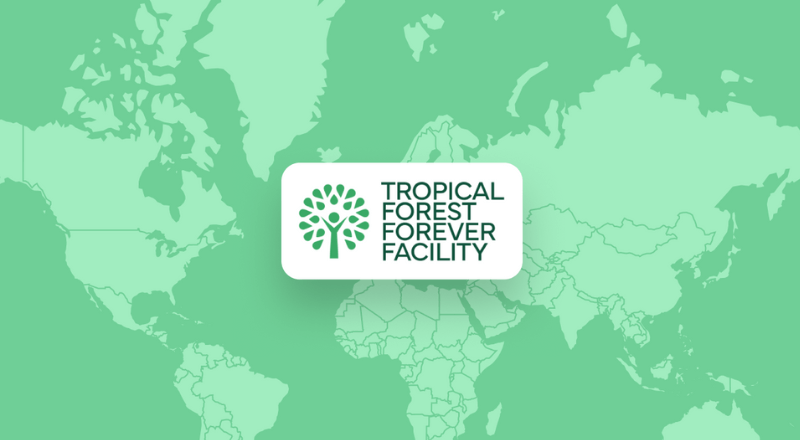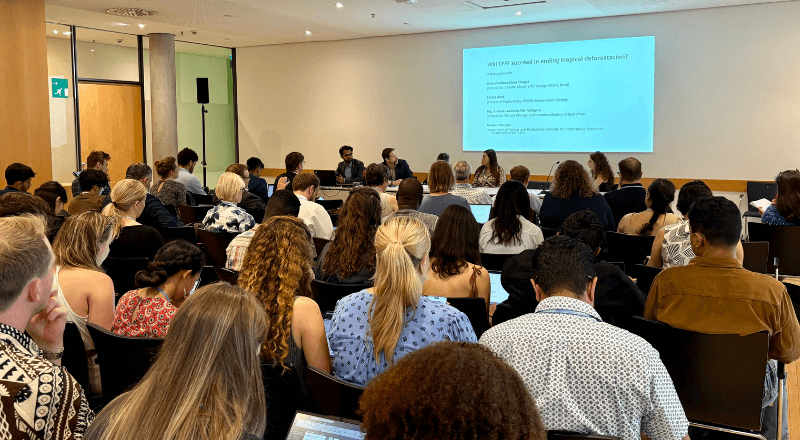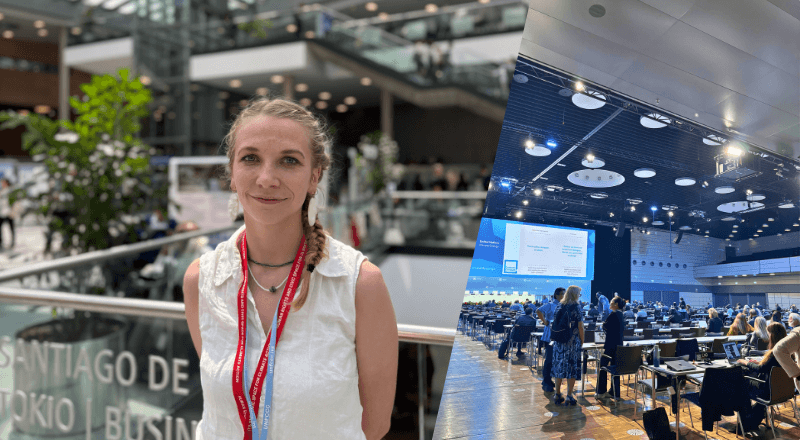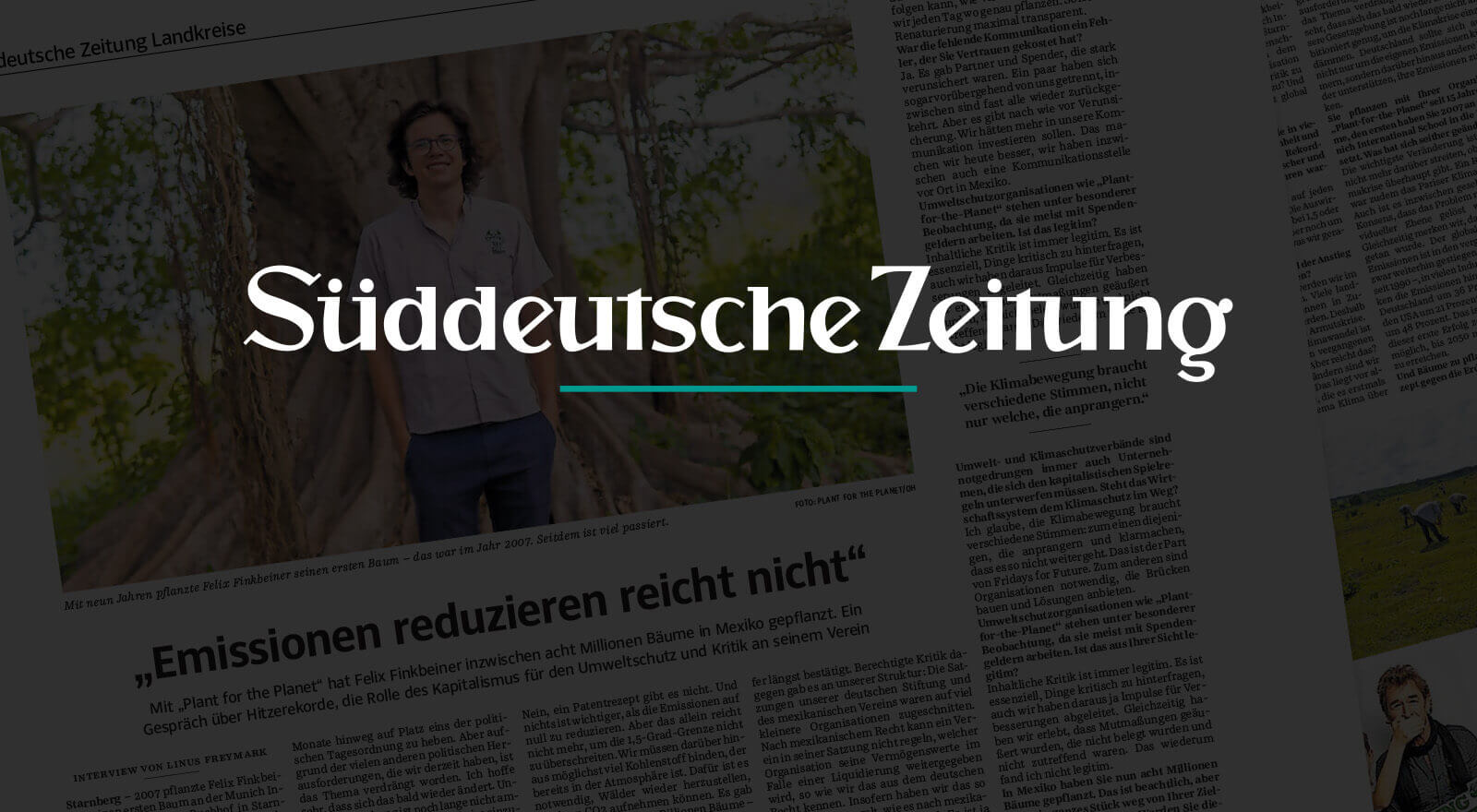
With “Plant for the Planet,” Felix Finkbeiner has now planted eight million trees in Mexico. An interview about heat records, the role of capitalism in environmental protection, and criticism of his association.
Sueddeutsche Zeitung 2022/08/13
interview by linus freymark
Starnberg – In 2007, Felix Finkbeiner planted his first tree at the Munich International
School at the Buchhof in Starnberg-Percha. Since then, mankind has experienced one record summer after the next – and Finkbeiner’s organization “Plant for the Planet” has had to contend with criticism. What does the founder have to say about it? And what is needed to implement climate protection effectively on a global scale?
SZ: Mr. Finkbeiner, forest fires in many parts of Europe, along with drought and heat: Is this record summer just what researchers and climate protectionists like you have been warning about for years?
Felix Finkbeiner: We are definitely experiencing the first steps towards this. The effects of the
climate crisis, which we expect at 1.5 or even two degrees, are even more devastating than what we are currently experiencing.
What other effects will the rise in temperature have on us?
The biggest consequences we will experience will be in the food sector. Many agricultural
land will no longer be able to be used in the future. That’s why the climate crisis is also a poverty crisis. Public awareness of climate change has grown enormously in recent years. But is that enough? Compared to other countries, we are very far along in Germany. This is mainly due to Fridays for Future, which for the first time managed to raise the climate issue to the top of the political agenda for months. But because of the many other political challenges we currently face, the issue has been pushed aside. I very much hope that this will change again soon. Our legislation is still nowhere near ambitious enough to contain the climate crisis. Germany should not only take care of its own emissions, but also support other countries in reducing their emissions.
You’ve been planting trees with your organization “Plant-for-the-Planet” for 15 years; you planted the first one at Munich International School in 2007. What has changed since then?
The most important change is that we’re no longer arguing about whether the climate crisis
exists at all. The Paris climate agreement was also a huge success. There is also now a social consensus that the problem cannot be solved at the individual level. At the same time, we realize that something has already been done. Although global emissions have continued to rise in recent years – by eleven percent since 1990 – emissions in many industrialized countries are falling significantly: in Germany by 36 percent since 1990, in the US by 21 percent, in the UK by 48 percent. This is far too little, but this initial success shows that it is not impossible to achieve net zero emissions by 2050.
And planting trees is the panacea for global warming?
No, there is no patent remedy. And nothing is more important than reducing emissions to zero. But that alone is no longer enough to keep us from exceeding the 1.5-degree limit. We also need to sequester as much carbon as possible that is already in the atmosphere. To do this, it is necessary to restore forests, which can then absorb CO₂. There were about six trillion trees on Earth – we have destroyed half of them in the meantime. We have the opportunity to restore about one trillion of these trees. That is our goal.
Among other project areas, your largest site is on Mexico’s Yucatán Peninsula.
Why there in particular?
This part of Mexico has an extremely high biodiversity. At the same time, it is highly endangered due to high forest loss. We have to prioritize these regions. For Mexico, there were also many practical reasons. We already had many supporters there, and thus a strong team with which we could build up the project.
Two years ago, 700,000 trees were flooded there. Critics accused you in “Die Zeit” and “Stern” that the area was unsuitable for your project.
2020 was the worst hurricane season since 1916. Around ten percent of the trees we had planted in the project up to that point were affected – that was an enormous setback from which we have learned two lessons: First, we need to communicate such events much more aggressively – we had only publicized the incident in our annual planting report.
We do that differently now. If there is a forest fire, for example, no matter how small, it is immediatelyvia our social media channels. Secondly, we have improved our inspection process
to be able to predict such events a little better in the future using satellite data from the last 30 years.
The reports also said that you had not obtained any planting permits at all, and that half of your land was located in a protected biosphere reserve. On top of that, there was criticism of the structure of your foundation: for example, in the event of the liquidation of your Mexican association, the money from the organization could very easily be transferred to other non-profit organizations without earmarking.
The core of the reporting in Zeit consists of the implied insinuation, we have not planted as many trees as stated or that we have deliberately acted in a non-transparent manner. We clearly reject these accusations, and the correctness of the number of trees planted has long since been confirmed by an auditor. On the other hand, there was justified criticism of our structure: The statutes of our German foundation and the of the Mexican association were tailored to much smaller organizations. Under Mexican law, an association cannot regulate in its statutes to which organization its assets are to be passed on in the event of liquidation, as we are familiar with under German law. In this respect, we have regulated this as watertightly as is possible under Mexican law. And it is ensured that any money is at least returned to a charitable organization.
As far as the reserves: And yes, parts of our land are located in protected reserves.
However, there are no problems associated with this. We also obtain the permits – but always after we know exactly how effectively to plant.
In response, you announced a reappraisal and a “transparency offensive”.
What has happened since then?
We have drawn up new bylaws that came into force in Germany last week.
We were accepted into the Transparent Civil Society initiative.
We have also hired external renaturation experts to monitor our renaturation in Mexico. We have established additional research partnerships. We also significantly expanded our team of ecologists. We are communicating more today. We have also developed an app where everyone can track exactly how many and which trees we plant every day and exactly where. In this way, the renaturation is maximally transparent.
Was the lack of communication a mistake that cost you trust?
Yes. There were partners and donors who were very unsure. A few have even temporarily parted ways with us; in the meantime, almost all of them have returned. But there is still uncertainty. We should have invested more in our communications. We are doing a better job of it today, and we now have a communications office on the ground in Mexico.
Environmental protection organizations like “Plant-for-the-Planet” are under particular scrutiny because they usually work with donations. Is that legitimate?
Criticism of content is always legitimate. It is essential to question things critically, and we have also derived impulses for improvement from this. At the same time, we have experienced that assumptions were made that were not substantiated and were not accurate. I don’t think that’s legitimate. Environmental and climate protection associations are, by necessity, also companies that have to submit to the capitalist rules of the game.
Does the economic system stand in the way of climate protection?
I believe the climate movement needs different voices: On the one hand, there are those who denounce and make it clear that things can’t go on like this. That is the part of Fridays for Future. On the other hand, we need organizations that build bridges and offer solutions.
In Mexico, you have now planted eight million trees. That is impressive, but
still a long way from your target of one trillion. Will you reach this
Will you reach this goal in the future?
We still have a long way to go, but I’m optimistic. We also want to not only focus on our own projects, but also support more than more than 100 other organizations with free advice and software to help them raise funds and plan, implement and monitor reforestation. To expand this further, we opened a research park in Mexico this year. And I emphasize again: the trillion trees are only a fraction of what is needed globally. We need additional policy-driven changes in many areas of life. For example, accelerated coal phase-out, electrification of almost all energy-intensive processes, subsidies for clean hydrogen for industrial processes, and a higher CO₂ tax.
